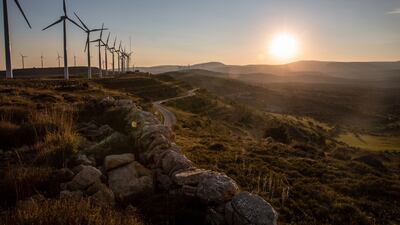We have become better at using energy. Isn't that surprising? Yet World Bank data shows that globally we are getting more economic productivity out of less and less oil. Since the data started being tracked in 1990, our efficiency has improved continuously. Unfortunately, despite these gains, each person’s average energy consumption has gone up about 15 per cent between 1990 and 2014. And in that time, the global population has ballooned to include 3 billion more people.
After a brief hiatus, global energy consumption has surged past pre-pandemic levels, according to the US Energy Information Administration. And more money than ever is being pumped in oil from tar sands and in fracking. Have we lost sight of the larger need to decarbonise our economies now that the price of oil is up, production and travel have resumed and we’re in recovery overdrive?
Decarbonising is not just a nice thing to do, it’s an imperative. The Intergovernmental Panel on Climate Change (IPCC) came as close as an organisation of its kind will come to describing a slow-motion train wreck if we do not act decisively and now on climate. When current crises are resolved and new high-urgency ones appear, climate change still looms large and races toward us from a future that is closing in rapidly. Not least because the World Meteorological Organisation warns us that the 1.5ºC increase will likely be a reality in the next five years.
Despite the viral and geopolitical turmoil we are witnessing, I do see indications that a transition is afoot. And a key word in the transition is one plucked from the zeitgeist: decentralised.
I’m not thinking of cryptocurrencies, blockchain or the metaverse, or any other current digital experiments. With the relentless advance of science and the resulting technologies, we will see the fundamental shift from location-bound to remote technology-enabled energy. This is what the Dubai Future Foundation has forecast, following a deep look into what we dubbed "50 Global Opportunities", a report we published earlier this year.
The point of decentralised energy is that it does not come from a specific spot on the map. This kind of energy can be available to anyone, anywhere.
Right now, any hydrocarbon energy source is tied to a physical location – a well in this case – and crude oil is shipped by the barrel around the world. Because sources of hydrocarbon energy are concentrated in pockets across the planet, this type of energy is centralised.
A decentralised energy future is tied to technology. But you can understand one of the earliest and crudest forms of decentralised energy by thinking of human's first foray into the energy industry: fire. That simple wood-powered fire provides warmth for our bodies and heat for cooking and basic industrial processes. It’s a semi-decentralised power source because it still depends on natural resources such as wood, but at the dawn of civilisation that was likely not a limiting factor.
A windmill, too, provides semi-decentralised energy, though it does require some cooperation from nature, for wind to power it. A 20th century early technology-centered power source is nuclear fission. Nuclear reactors run on uranium, a commonly found metal, and in 2021 some 36 countries operated nuclear power stations generating a tenth of the world’s energy needs. Harnessing the power of technology means it can be deployed anywhere, a bit like the internet. More recently, solar energy-harvesting photovoltaic cells have become the poster child of the sustainable energy revolution.
The ultimate decentralised energy scenario will generate clean energy, for any use, at the exact location of the users.
There are at least three technologies that could be the agents of our decentralised future. First, small modular nuclear reactors, or even micro-scale reactors, which eventually could run on the waste of large scale nuclear facilities. Part of an ongoing trend of Silicon Valley-supplied tech solutions to vexing problems, start-ups have appeared to provide such micro-nuclear installations. But don’t forget: it's not plug-and-play and setbacks are part of progress. The US Nuclear Regulatory Commission denied Oklo, a nuclear energy start-up out of Silicon Valley, the license to build its fast reactor. Surely they will be bouncing back, not least due to the growing urge of countries to be energy self-sufficient.
Second, nuclear fusion, that holy grail of energy sources, has been a distant dream for over five decades, yet some claim that container-sized units could be viable in the next five to ten years.
Third, hydrogen production is also going to be part of this energy-technology complex as a future clean energy source thanks to solar or fusion energy.
Technology-enabled decentralisation of clean energy generation is an important next step in our evolution. Decentralisation can also be an important element in reducing volatility, hedging against shocks and ensuring continuity. Much like Aribnb is the world’s biggest “hotel brand” but owns no property, there will be a time when modular, decentralised clean energy production will surpass the energy supplied by the traditional providers.


